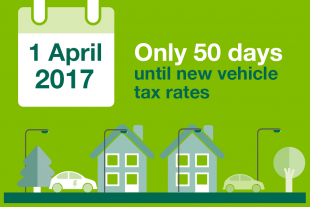Drivers in Cheshire are being reminded the A556, M56 junctions 7 and 8 and M6 junction 19 will all be closed next weekend as work to open the new £192 million Knutsford to Bowdon dual carriageway gets underway.
Highways England, which is replacing the A556 between the 2 motorways with the new dual carriageway, today confirmed the new road is currently on course to open for the first time on Monday 6 March – after the second of 3 full weekend closures of the existing A556 and 2 motorway junctions.
The first weekend closure, which will be in operation from 9pm next Friday night (17 February) and 5am on the following Monday morning (20 February) – a total of 56 hours – will allow preparations for the old road to be sealed off to through traffic and for the motorway junctions to be tied into the new dual carriageway.
Work over the 3 weekend closures includes linking the southern end of the new dual carriageway (top centre) with the roundabout at junction 19 of the M6 at Knutsford and sealing off the existing A556 (top right)
Highways England project manager Paul Hampson said:
We’re delighted to be able to confirm that we can start work next week on preparations to open the new road with the first of these 3 scheduled weekend closures.
We appreciate there will be some inconvenience for people wanting to use the A556 and the 2 motorway junctions over these weekends but we have worked hard to plan diversions for through traffic and local road users, which will be clearly-signed.
We’re working to publicise these but road users can help by taking a little bit of extra care in planning journeys, especially if they are heading to Manchester Airport on any of the 3 weekends.
Motorway users will be diverted to alternative junctions to leave or join the M6 or M56.
Drivers on the northbound M6 heading for Manchester and Manchester Airport will need to stay on the M6, join the westbound M56 at Lymm Interchange (M6 junction 20) and then join the eastbound M56 at junction 10 (Preston Brook).
Drivers on the westbound M56 heading away from Manchester and wanting to join the southbound M6 will also need to travel to junction 10 at Preston Brook – joining the eastbound M56 from there to travel back to Lymm Interchange and access the southbound M6 .
Local diversions , which will be strictly monitored, will also be in place with access to the A50, Chapel Lane and Mereside Road. A one way system, travelling southbound, will be in place at Bucklow Hill to allow access for residents and businesses located between the Bucklow Hill and Mere junctions along Chester Road. Vehicles must use Mereside Road and Chapel Lane to access Chester Road. Traffic marshalls will be at Mere and Bucklow Hill junctions to facilitate the local diversion.
Over the weekend, only the northbound exit slip road at junction 19 of the M6 will remain partially open – allowing drivers to access the southbound, local authority section, of the A556 towards Northwich.
Work during the 3 weekend closures also includes connecting the new dual carriageway at its northern end with junction 7 of the M56 using these new free-flow link roads, opened in December.
Drivers are advised to build in some extra time for the diversions and to check traffic conditions before setting out on journeys. Highways England provides live traffic information via its website, local and national radio travel bulletins, electronic road signs and mobile apps.
Information is also available from Twitter via @highwaysNWEST as well as services in other regions. Providing they can do so safely, road users can also call the Highways England customer contact centre on 0300 123 5000 to keep up to date with road conditions.
The current schedule for the 3 weekend closures – and the timetable for opening the new road – involves:
- next weekend’s full closure of the existing A556 and associated M6 and M56 junctions (Friday 17 February to Monday 20 February)
- a full weekend closure of the existing A556 and associated M6 and M56 junctions from 9pm on Friday 3 March to 5am on Monday 6 March – with the new road opening to drivers for the first time that morning
- a final full weekend closure of the old A556 and new A556 between 9pm on Friday 10 March and 5am on Monday 13 March to finalise work to seal off the old road
Construction of the new A556 link road, between the M56 and the M6, started in November 2014 and is part of a £15 billion government investment in motorways and major A roads by 2021 which is being delivered by Highways England as part of the Northern Powerhouse initiative.
General enquiries
Members of the public should contact the Highways England customer contact centre on 0300 123 5000.
Media enquiries
Journalists should contact the Highways England press office on 0844 693 1448 and use the menu to speak to the most appropriate press officer.
read more


